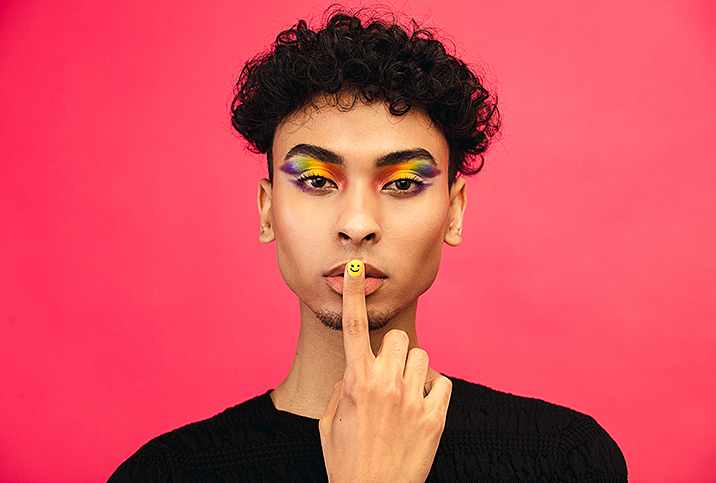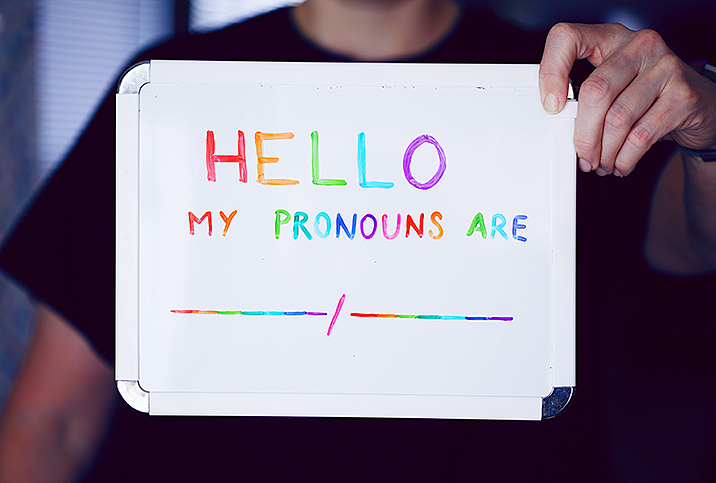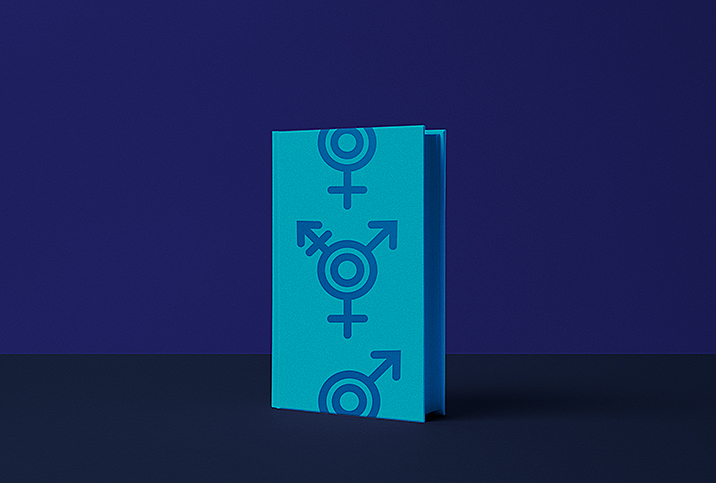5 Questions About Gender That Are None of Your Business

The way we define and express gender is continually expanding. More people who don’t fit into traditional understandings of gender have become more comfortable and open about expressing their particular identities. These expressions of identity have made the world a more colorful place, to say the least.
A quick internet search for different gender identities will reveal dozens of terms, including male, female, transgender, nonbinary, gender-neutral, agender, genderqueer, gender nonconforming and so many more.
If all of these terms are new to you, it’s normal to worry that your ignorance might come across as insensitivity—so do something. Conduct some proactive research on the subject and get educated. It’s a great solution. You’ll likely never be quite done learning, but it’s important to keep up the effort.
Remember, though, that some questions regarding gender identity or expression should always be avoided. While they may seem like appropriate questions to you, they could be viewed as disrespectful by the person you’re asking.
There’s no way to know everything that could go wrong in a conversation, but put the following five questions in the No column. Make that a Hard No column.
1. So, physically, are you male or female down there?
It is never OK to ask someone this. The reason is simple: Questions about another person’s genitalia are invasive and inappropriate. You wouldn’t ask this of a person whose gender identity you understood, and it doesn’t become OK just because you’re suddenly curious. After all, curiosity does not excuse rudeness and insensitivity. If a person is comfortable sharing personal information with you, they will—on their own terms.
2. Why do you use those pronouns?
The pronouns a person uses—such as she/her, him/his or they/them—depend on their gender identity and expression. While a person’s pronouns may take you by surprise, you shouldn’t ask questions like this, because they invalidate a person’s identity.
Despite popular belief, pronouns are typically not a preference or choice; they are truly how a person feels, and they aren’t “wrong” simply because you’re unfamiliar with them. So, instead of asking why a person uses certain pronouns, simply show respect and acceptance by using the pronouns they ask you to use.
3. Which bathroom do you use?
Not all state laws allow transgender individuals to use the bathroom that corresponds with their gender identity. No matter the law where you live, don’t ask someone which bathroom they use, for the same reasons you should not ask someone about their genitals: It’s not your business.
4. Are you sure you aren’t just gay?
Gender identity is completely separate from sexual identity. You should avoid this question not only because it assumes you know who this person is attracted to—you likely don’t—but also because you have no way to know the extremely personal reasons a person identifies with a certain gender expression. This line of thinking also upholds outdated ideas and stereotypes about the LGBTQIA+ community.
5. What if you change your mind?
As with the previous questions, the main reason to avoid this question is because it’s none of your concern. If a person decides to physically transition or express themselves a certain way, that is up to them. It almost certainly has nothing to do with you or your life. In addition, there are people who identify as gender fluid, meaning that yes, their appearance and pronouns may change over time, even frequently. This doesn’t make their previous expressions fake or wrong. Above all, this question casts doubt on a person’s identity, which is the very last thing they need.
There’s no shame in admitting that there’s a lot about gender identity and expression you don’t yet know. But if you do some research and make a conscious effort to be respectful and accepting of your fellow humans, you’ll be on the right path.

















